Lisbeth Behrendt Mayer
Gardening under Fascism
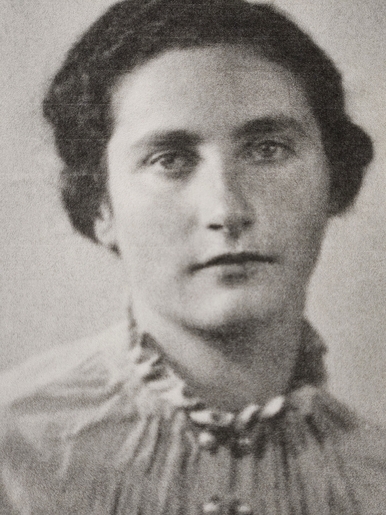
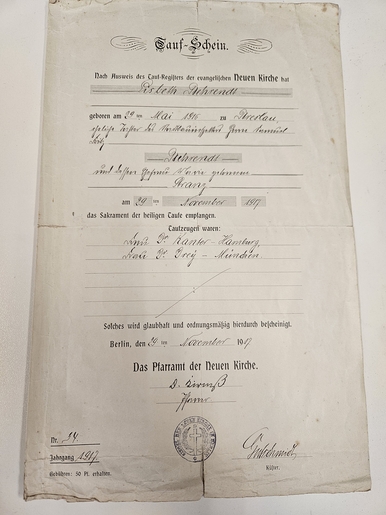
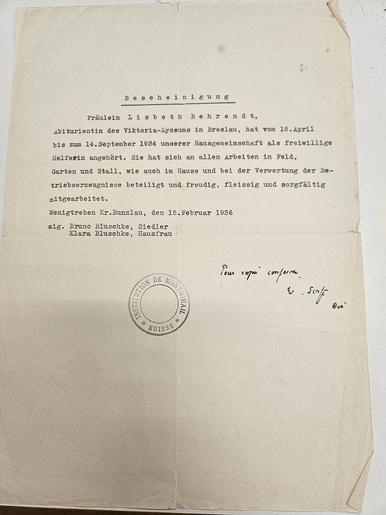
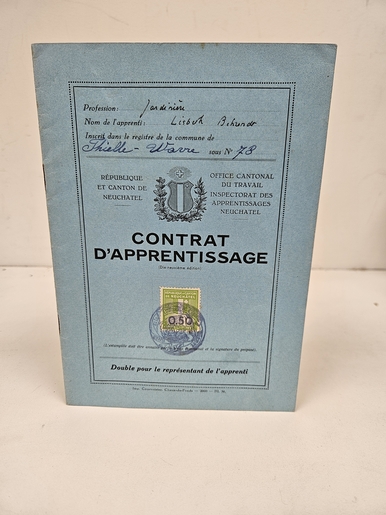
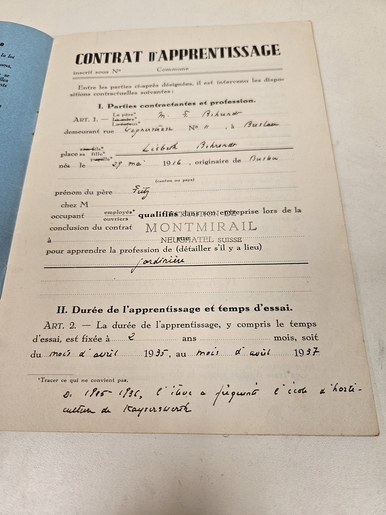
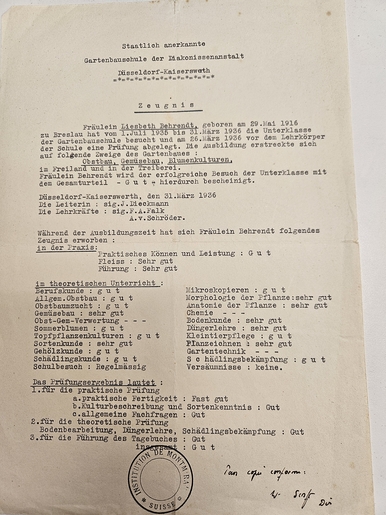
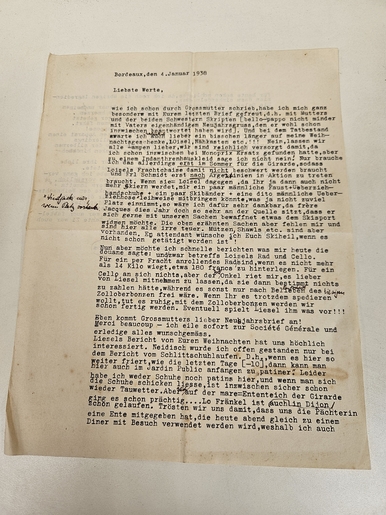
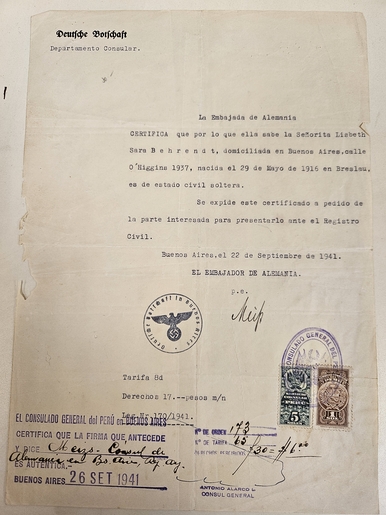
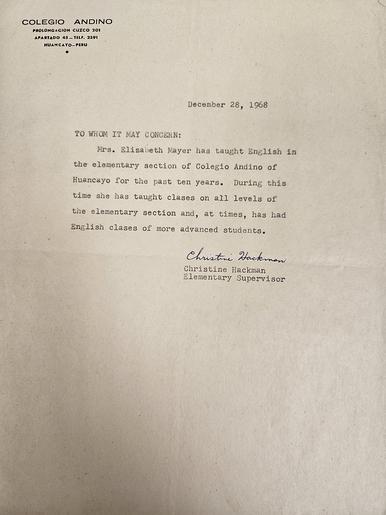
The story of Lisbeth Behrendt Mayer who studied and practiced biodynamic agriculture in Europe before moving to South America in 1939 is featured in the recently donated Wilhelm and Lisbeth Mayer Collection.
Lisbeth Behrendt was born on May 29, 1916, to Marie Stranz and Samuel Fritz Behrendt in Breslau, Germany, which is now Wroclaw, Poland. In the 1920s, during Lisbeth’s childhood, Breslau had the third largest Jewish community in Germany, although Lisbeth’s parents had converted to Lutheranism before she was born. Abandoning Judaism for the Lutheran Church was a requirement for German Jews hoping to join Germany’s civil service and rise through its ranks – and Fritz Behrendt certainly did rise through Breslau’s bureaucratic ranks when he was appointed to the position of city planning officer. For Lisbeth’s father, who had grown up in a secular Jewish family in Königsberg, joining the Lutheran Church in the early twentieth century was a means of cultural assimilation and professional advancement rather than an expression of religious fervor. Even so, Lisbeth was baptized into the Lutheran Church on November 29, 1917, exactly one year and a half after her birth.
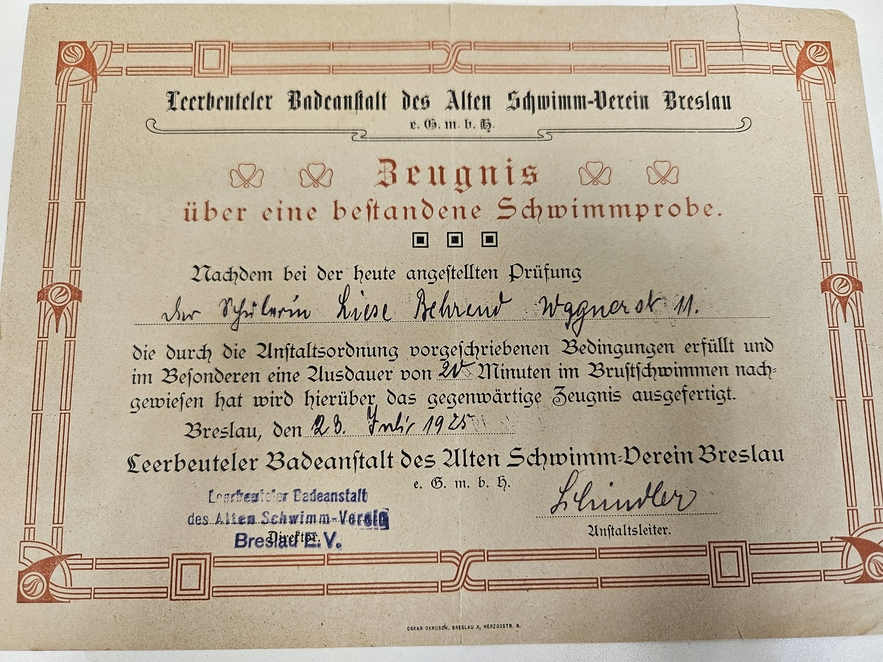
Upon completing her high school (gymnasium) education in Breslau in 1934, just one year after the Nazis came to power, Lisbeth knew that she had few options available to her professionally, and that she would be unable to pursue the career in academia she had initially desired.
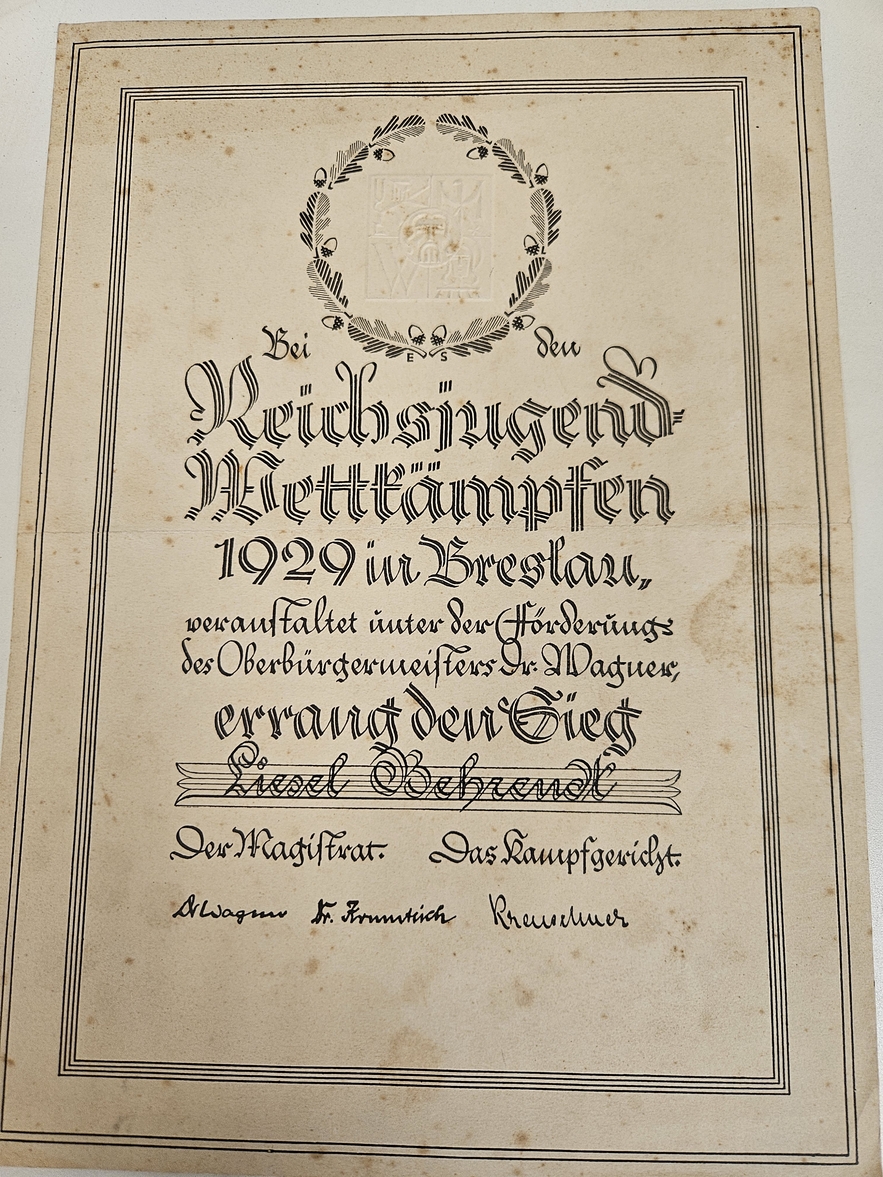
Lisbeth grew up in a culturally and politically progressive family, influenced by the ideas of Austrian philosopher Rudolf Steiner (1861-1925) and German-Lutheran theologian Dietrich Bonhoeffer (1906-1945); in fact, the Behrendt family had personal connections to Bonhoeffer, as they had both lived in Breslau in the 1920s. Steiner’s famous notion of “biodynamic agriculture,” first proposed in 1924 as an attempt to bridge the divide between ecology and mysticism, resonated not only with many Austrians and Germans, but with people throughout Europe, the United States, and Australia. Bonhoeffer, meanwhile, was an anti-Nazi dissident who had founded the Confessing Church, which steadfastly resisted Nazi efforts to unify all Protestant denominations and subordinate them to the German state.
Against this backdrop of progressive dissidence in a fascist government, one option that appealed to an 18-year-old Lisbeth was biodynamic gardening, which Lisbeth studied in Germany and Switzerland. Despite the growing dangers of being Jewish in Nazi Germany, Lisbeth was able to pursue gardening and horticultural studies in Düsseldorf, Germany at a state-approved school in 1935 and 1936. Another internship in Neuchâtel, Switzerland taught Lisbeth the fundamentals of arboriculture, agriculture, botany, horticulture, and related disciplines.
The political situation in Nazi Germany only worsened by the time Lisbeth completed her gardening coursework in 1937, and so she moved to France with her older sister, Charlotte Carrive. Charlotte was married to Jean Carrive, a surrealist poet and Kafka translator who owned a vineyard in Gironde (southwestern France). Lisbeth lived with her sister and brother-in-law at their vineyard, where she continued to develop her Steiner-influenced approach to agriculture and gardening.
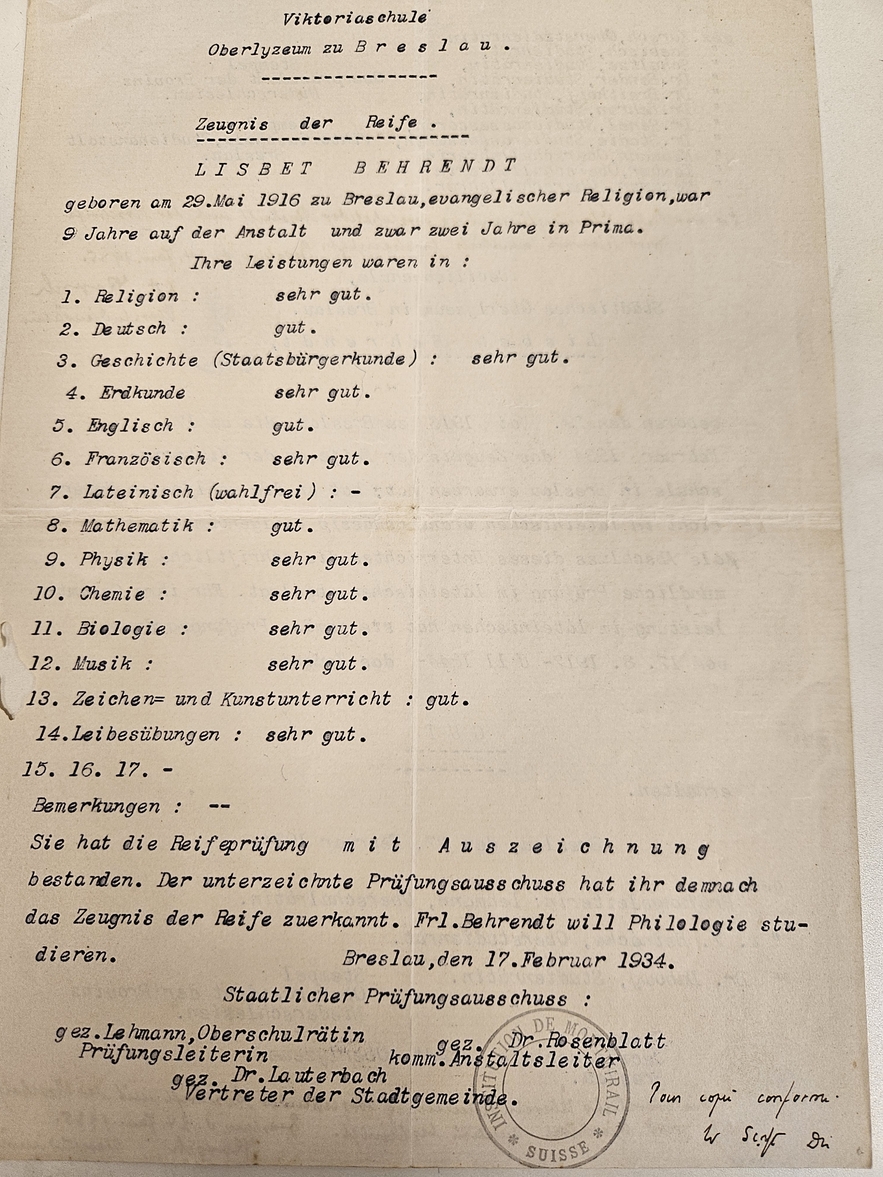
In 1939, Lisbeth and her parents emigrated to Buenos Aires, Argentina, where Lisbeth’s older brother Peter had been living and working in safety for several years. There, Lisbeth worked for a market gardener who specialized in cactus collections, and that seems to have been her last professional experience as a gardener. Soon afterwards, in 1941, Lisbeth married Wilhelm Mayer, whom she had met in Breslau in the 1930s, and they moved to Peru where he had been living since 1935. In addition to raising four children, Lisbeth became an English instructor in Lima, Peru. Lisbeth Behrendt Mayer died on August 18, 2002, at age 86.